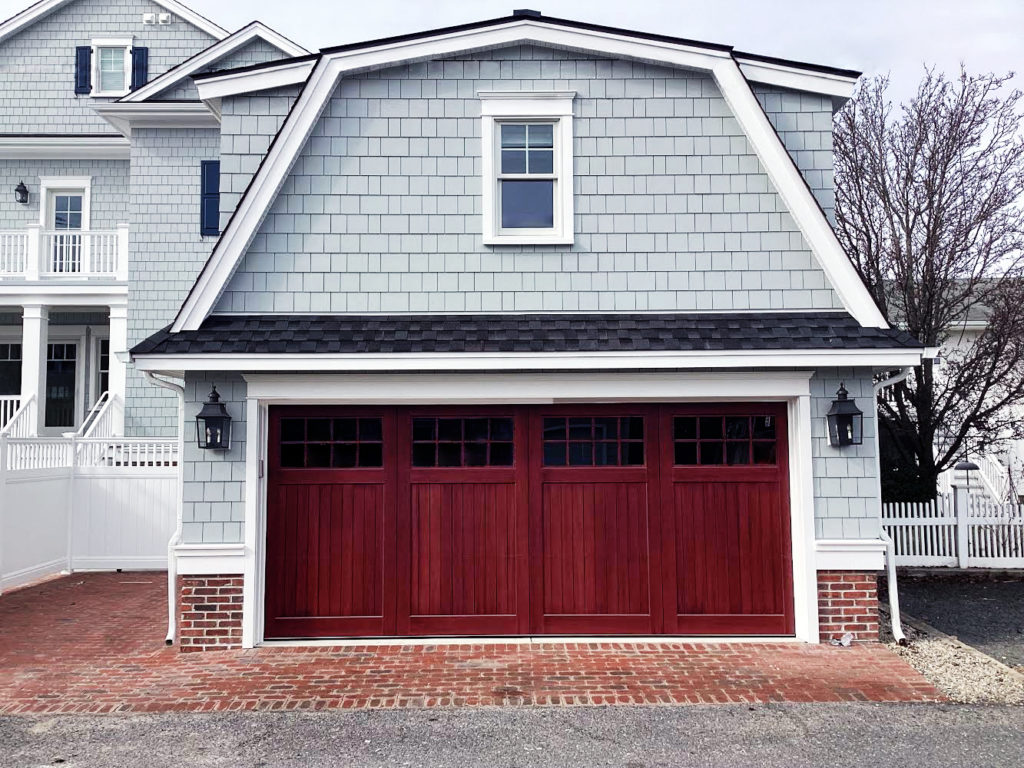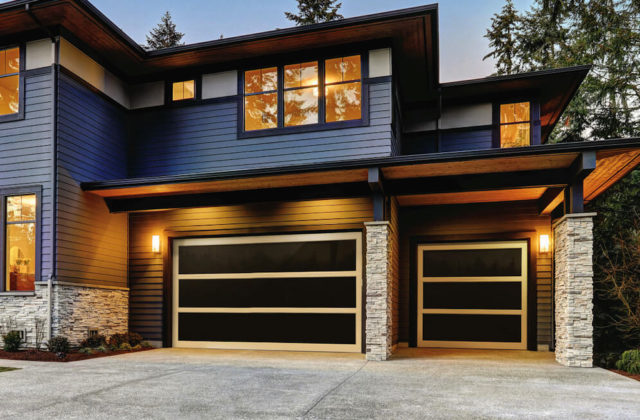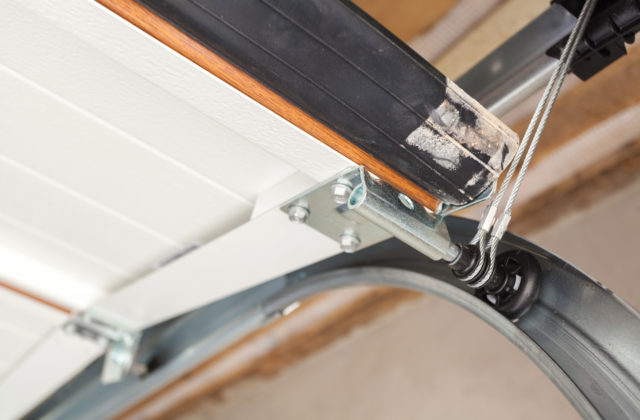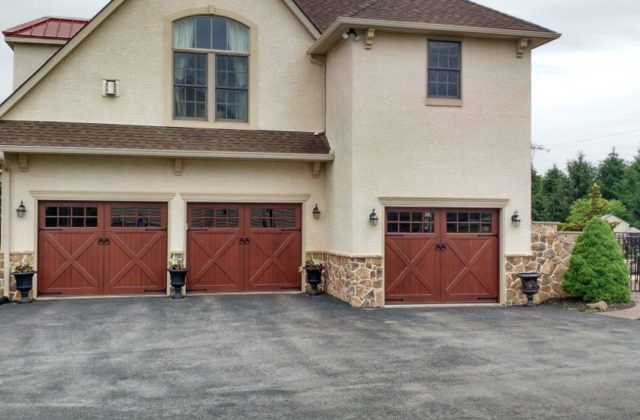As eco-friendly home improvements become increasingly popular, it’s key to remember your garage door. Eco-friendly garage doors are made from high-quality materials and offer superior durability. Plus, you can feel good about purchasing a sustainable product that doesn’t harm the environment. In this blog, we’ll review the basics of green garage doors so you can choose the right one for your home.
What Makes a Garage Door Environmentally Friendly?
All eco-friendly garage doors share four main characteristics, which we’ll explore in more detail below.
Use of Eco-Friendly, Sustainable Building Materials
To be considered environmentally friendly, garage doors must be constructed from materials that are both sustainable and recyclable. To ensure your door is made from sustainable materials, look for a Scientific Certification Systems (SCS) label. This certifies that the door was made from at least 88% recycled content and that its insulation is free from chlorofluorocarbons (CFCs), which damage the ozone layer.
Wood garage doors should be sourced from suppliers that follow eco-friendly harvesting techniques and meet global environmental regulations. Wood composite doors are an eco-friendly choice that use already-cut materials to avoid creating new waste. Steel and aluminum are also recyclable, although aluminum doesn’t provide as much insulation as steel. If you choose a painted door, ensure the manufacturer uses paints that are low in harmful volatile organic compounds (VOCs).
An Emphasis on Energy Efficiency
Your garage entrance is the largest opening to your home, so there’s a lot of potential for energy loss. In fact, the majority of a garage door’s negative environmental impact can be attributed to hot or cold air loss. Over time, this leads to an increase in energy use and costs, which hurts both you and the environment.
Eco-friendly garage doors have enhanced insulation with high-quality materials to maintain a comfortable temperature all year round. They also have energy-efficient windows (if applicable) and plenty of weatherstripping to reduce costly air release.
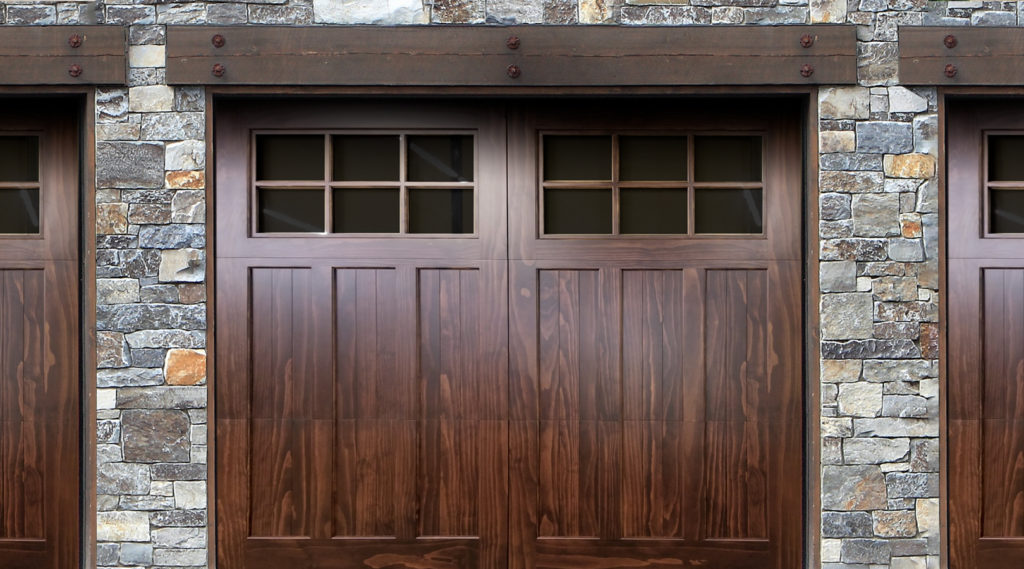
Responsible Manufacturing Processes
Along with environmentally-conscious material sourcing, the manufacturing and transportation process must also be green. Turning virgin wood, steel, and aluminum into garage doors is a significant contributor to greenhouse gas emissions. It also uses far more energy than recycling existing materials. In fact, it takes 95% less energy to recycle aluminum than to source virgin products.
Eco-friendly manufacturers must also follow specific recycling standards and reuse all leftover materials. It’s also key to use as little packaging as possible (without risking product damage), as packaging plays a large role in environmental waste. Additionally, manufacturers should focus on improving transportation efficiency to reduce carbon emissions and fuel consumption.
Quality Construction for a Long Lifespan
Last —but certainly not least— eco-friendly garage doors should be built to last, ensuring they’re replaced less frequently. In turn, this reduces the consumption of natural resources and energy required to produce new doors.
Eco-Friendly Garage Door Wood Materials
Environmentally-friendly wood garage doors are often made from cutting-edge products using sustainable manufacturing. We’ll take a closer look at these unique products and the advantages of sustainable materials below.
Accoya® Wood
Accoya® is a biodegradable wood material that’s non-toxic, fully recyclable, and has low CO2 emissions for minimal environmental impact. It’s a sustainable alternative to slow-growing hardwoods and other carbon-intensive, man-made materials often used in garage doors.
To create Accoya®, the manufacturer adds moisture-resistant (hydrophobic) acetyl groups to natural wood. At the same time, it reduces the number of moisture-binding (hydrophilic) hydroxyl groups. Hydrophobic groups are insufficient in natural wood, leading to the following:
- Swelling and shrinking due to moisture absorption and loss
- Susceptibility to biological organism attachment (e.g. mold and mildew)
- Reduced durability and stable performance
Accoya®’s proprietary acetylation process boosts wood performance through enhanced biological durability and dimensional stability. Accoya® can also be recycled to manufacture Tricoya®, which we’ll discuss next.
Tricoya® Wood
Like Accoya®, Tricoya® is manufactured from fast-growing, Forest Stewardship Council (FSC)-certified timber. FSC certification guarantees the wood is sourced from responsibly-managed forests that satisfy the highest environmental sustainability standards.
Tricoya® follows the same acetylation process as Accoya® for a finished product that’s durable, moisture-resistant, and dimensionally stable. This keeps carbon locked in a useful form, rather than being continuously released into the atmosphere and further damaging the ozone layer.
Extira® Panels
Extira® panels are manufactured from sustainable, leftover wood that has no commercial timber value. It’s specifically designed for exterior applications and has proven superior to medium-density fiberboard (MDF). It’s treated with EPA-registered zinc borate, an environmentally-friendly, naturally-occurring biocide. There’s also no added urea-formaldehyde, and its overall formaldehyde emissions are equivalent to background environmental levels.
To create Extira®, the manufacturer follows a proprietary treated exterior composite (TEC™) process. This involves blending a mix of ingredients (including sustainable wood fibers) and forming them into a thick mat with a sealed press. The press contains a textured plate that produces a wood grain, while the other side is smooth. The fiber mat is then primed on four sides with two coats of a low-VOC primer containing a mildewcide.
Shou Sugi Ban-Treated Wood
Shou sugi ban is an ancient Japanese technique that preserves wood by charring it with fire. Once charred, the wood is cooled, cleaned, and finished with a natural, environmentally-friendly oil coating. Shou sugi ban-treated timber is also made fire-resistant without the use of potentially harmful chemicals.
More Tips for An Environmentally-Friendly Garage
Sustainable manufacturing processes and eco-friendly materials aren’t the only ways to ensure a green garage. The items below are the perfect complement to any eco-friendly garage door.
Eco-Friendly Garage Door Openers
While it may not seem immediately obvious, electric garage doors are a significant energy draw. Look for a solar-powered opener or one that uses very little power on standby mode to boost efficiency and save money.
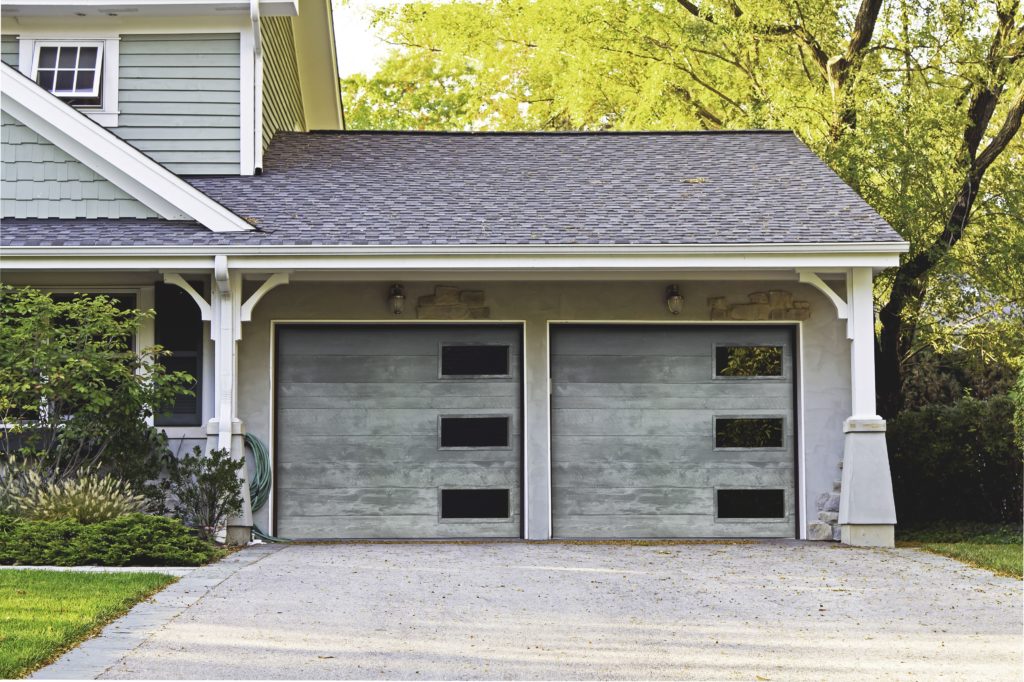
Regular Maintenance
Eco-friendly garage doors are built to last, but staying on top of regular maintenance will extend your door’s lifespan and keep it looking like new. Make sure you:
- Schedule an annual professional inspection
- Wash the door inside and out once a year
- Lubricate the metal components on a regular basis
- Keep laser safety sensors free of debris for efficient operation
Thorough Insulation
Properly insulating your garage is a great way to reduce your environmental impact and spend less on energy costs. Most homeowners use fossil fuels to heat and cool their homes, which release carbon emissions and greenhouse gases. When your garage is properly insulated, your HVAC system doesn’t have to draw as much energy to control temperatures. Garages often have large footprints, so the more insulated your garage, the more insulated your home is overall.
There are also several steps you can take to insulate your garage door itself. You can start by adding sustainable materials like cotton fiber around the perimeter of the door. If your garage door has windows, make sure they’re caulked properly and reseal them as necessary.
If you are interested in learning more about insulation, read our in-depth guide to garage door insulation to gain further knowledge on R-value, and additional benefits.
Choose Artisan for Your Eco-Friendly Garage Door
If you’re interested in an environmentally-friendly garage door, look no further than Artisan. All of our lumber is responsibly harvested from sustainably managed forests. We reuse leftover materials whenever possible and recycle everything else. Additionally, we use energy-efficient lighting and equipment, along with waterborne finishes as opposed to solvents. And our Medallion, Benchmark, and Benchmark 2 product lines are all FSC certified.
